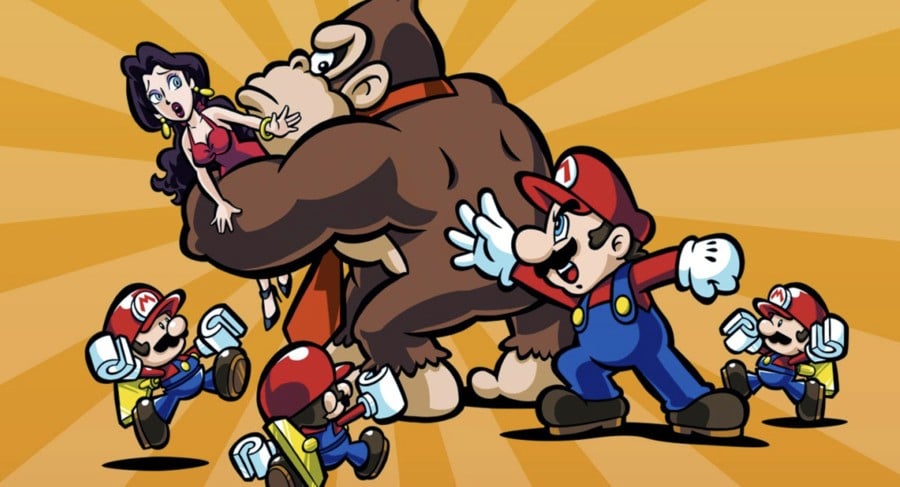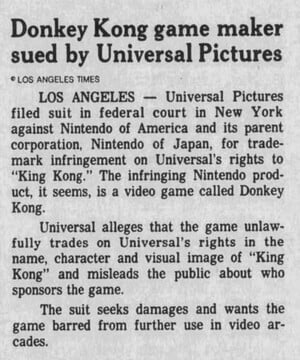
Nintendo is one of the most recognisable companies in the world today, and characters such as Mario and Donkey Kong are known to millions of people worldwide.
However, had the company lost a vital court case back in 1983, we may never have seen either of these characters again – and, you could argue, Nintendo itself might not have become the powerful force it is today.
Universal City Studios, Inc. v. Nintendo Co., Ltd. was triggered by the release of the massively popular arcade title Donkey Kong in 1981, which Universal claimed infringed on King Kong.
Nintendo cited a previous case, Universal City Studios, Inc. v. RKO General, Inc., as proof that Universal itself had, in the past, argued the exact opposite; King Kong and its related storyline and characters were in the public domain.
One of the individuals involved in this case was Jerry Momoda, who recently spoke with Time Extension about his career at Nintendo.
Momoda had only been with Nintendo of America for less than a year, but he soon found himself representing the company as its resident gaming expert – or "gamesmaster" – during the lawsuit. He was tasked with demonstrating both Donkey Kong and its sequel, 1982's Donkey Kong Jr., before the judge, Robert W. Sweet.

"Within three months after moving to the new Redmond office, Mr. Arakawa [NoA president] said, 'Jerry, Howard Lincoln is going to call you from New York City in about half an hour. Make sure to be at your desk to take the call.'”
Howard Lincoln would later become NoA president himself, but at that time, he wasn't a Nintendo employee; he worked for a law firm representing the company.
"In Howard’s call from New York City, he said he wanted me to come out to play Donkey Kong and Donkey Kong Jr. in federal court," explains Momoda. "His assistant made all my travel arrangements, and I was even able to bring my girlfriend with me. My parents hardly knew what a video game was then, so you can imagine how astonished they were to learn I was going to New York City to play video games in federal court."
Momoda was flown to New York City and booked at the Helmsley Palace. "Back then, it was a famous posh hotel, located in midtown Manhattan," he recalls. "On the morning of the trial, I met with Howard for breakfast, where he explained what would be happening that day. The skilled trial lawyer, John Kirby, represented Nintendo."
Reflecting on the case today, Momoda admits he didn't realise just how much was at stake back in 1983 – if things had gone badly, the history of video games might have been very different today.
"In hindsight, it was good that I didn't know much about the case because I wasn't all that nervous," he explains. "I would have been shaking in my boots if I had known how significant it all was. Think about it. What if Nintendo caved to Universal, as some other companies already had? What if Nintendo lost? We might have never seen another Mario or Donkey Kong game."
Ultimately, Judge Sweet ruled that Universal had no control over the ownership of the name King Kong, or its characters and plot; he also felt there was no danger of consumers confusing King Kong with Donkey Kong, despite the similarity of the characters and their names.



